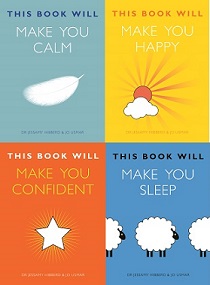 Women are more likely to be happier after divorce than men, a new survey commissioned by Style, The Sunday Times’ weekly fashion and beauty magazine, has revealed today.
Women are more likely to be happier after divorce than men, a new survey commissioned by Style, The Sunday Times’ weekly fashion and beauty magazine, has revealed today.
Over half of women (53%) reported that they are “much more happier” post-divorce, while less than a third (32%) of men said the same. The groundbreaking survey asked 1,060 divorced British men and women, with an average age of 54, more than 30 personal questions about their lives and the reasons behind their splits.
The revelatory results showed women were also more likely to use positive words about divorce, such as “glad”, “celebration”, and “excitement”, while men were more likely to talk of “failure” and “disappointment”.
What’s more, 61% of women surveyed said there were happy single and not looking for a relationship, versus 47% of men saying the same. Men were also more likely still to harbour feelings for a former spouse (17% vs 8% for women), and yet they were quicker to start dating again and more than 30% more likely to be in a new relationship.
Lorraine Candy, Editor-in-Chief of Style commented;
“We wanted to explore modern day perspectives on divorce and the reason behind it. The results are revelatory, showing there is a new generation of empowered and single woman, who have been married and come out the other side living a fulfilled single life.”
The most commonly cited reason for divorce was a person changing, by nearly half (49%) (35% said their partner changed, 14% admitted that they had). Most marriages, however, failed for multiple reasons, with mutual unhappiness being the next most frequent response (32%), followed by breaking down because one spouse had met someone else (28% said their partner me someone else, and 6% admitting they met someone else).
The survey also busted the seven-year itch myth – with nearly a third (32%) of respondents’ marriages saying ended before then, lasting between one and five years. The next blip came at 6-10 years (27%), followed by 16+ years (21%) – only 5% broke up after less than a year.
The decision to get a divorce is a short term one for most, with over half (51%) taking less than 6 months to decide. However women spend more time thinking about getting a divorce before starting proceedings than man and not surprisingly those who were married longer and those with children also took longer. The most common thing respondent did after their confirmed divorce was celebrate.
Divorce seems to be losing its stigma, with 86% of those surveyed agreeing that being divorced is not something to be ashamed of, and an overwhelming majority (90%) agreed staying in an unhappy marriage can be more destructive than a divorce. Only 3% of respondents got a prenuptial agreement but a third now agree they are important.
Exclusive survey from Style, The Sunday Times.





